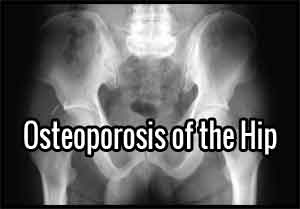- Home
- Editorial
- News
- Practice Guidelines
- Anesthesiology Guidelines
- Cancer Guidelines
- Cardiac Sciences Guidelines
- Critical Care Guidelines
- Dentistry Guidelines
- Dermatology Guidelines
- Diabetes and Endo Guidelines
- Diagnostics Guidelines
- ENT Guidelines
- Featured Practice Guidelines
- Gastroenterology Guidelines
- Geriatrics Guidelines
- Medicine Guidelines
- Nephrology Guidelines
- Neurosciences Guidelines
- Obs and Gynae Guidelines
- Ophthalmology Guidelines
- Orthopaedics Guidelines
- Paediatrics Guidelines
- Psychiatry Guidelines
- Pulmonology Guidelines
- Radiology Guidelines
- Surgery Guidelines
- Urology Guidelines
Expert body finds that higher protein intake benefits in osteoporosis

Adequate nutrition plays an important role in the development and maintenance of bone structures resistant to usual mechanical stresses. In addition to calcium in the presence of an adequate supply of vitamin D, dietary proteins represent key nutrients for bone health and thereby function in the prevention of osteoporosis. An expert panel of ESCEO and IOF has found that a protein-rich diet is beneficial for adult bone health provided there is adequate calcium intake.
European Society for Clinical and Economical Aspects of Osteoporosis, Osteoarthritis, and Musculoskeletal Diseases (ESCEO) and the International Osteoporosis Foundation (IOF) has come out with this consensus statement after reviewing major research studies regarding benefits and safety of dietary protein on bone health. It has also found no evidence that acid load due to higher dietary protein intakes, whether of animal or vegetable origin, is damaging to bone health. The review has been published in has.
The key findings of the expert group are:
- Hip fracture risk is modestly decreased with higher dietary protein intakes, provided calcium intakes are adequate;
- Bone mineral density (BMD), which is an important determinant of bone strength, appears to be positively associated with dietary protein intakes;
- Protein and calcium combined in dairy products have beneficial effects on calciotropic hormones, bone turnover markers and BMD. The benefit of dietary proteins on bone outcomes seems to require adequate calcium intakes;
- There appears to be no direct evidence of osteoporosis progression, fragility fractures or altered bone strength with the acid load originating from a balanced diet.
Professor René Rizzoli, Professor at the Division of Bone Diseases of the Geneva University Hospitals and Faculty of Medicine, stated:
"Adequate intake of dietary protein, together with calcium, is needed for optimal bone growth in children and the maintenance of healthy bone at all ages. This message needs to be reinforced in view of currently circulating myths suggesting that too much protein causes 'acid load' and is damaging to bone health. In fact, in the elderly, we find that a common problem is not too much protein, but too little. This review of the literature confirms that a balanced diet with sufficient protein intake, regardless whether of animal or vegetable source, clearly benefits bone health when accompanied by adequate calcium intake. This is particularly important for seniors with osteoporosis, and individuals at risk of malnutrition due to acute or chronic illness, or recovering from an injury."
The review has reiterated positive effect of high protein intake on bone mineral density or content and its positive effect in osteoporosis.
For further reference log on to :
Benefits and safety of dietary protein for bone health--an expert consensus paper endorsed by the European Society for Clinical and Economical Aspects of Osteoporosis, Osteoarthritis & Musculoskeletal Diseases and by the International Osteoporosis Foundation. Rizzoli, R., Biver, E., Bonjour, JP. et al. Osteoporos Int (2018). https:/

Disclaimer: This site is primarily intended for healthcare professionals. Any content/information on this website does not replace the advice of medical and/or health professionals and should not be construed as medical/diagnostic advice/endorsement or prescription. Use of this site is subject to our terms of use, privacy policy, advertisement policy. © 2020 Minerva Medical Treatment Pvt Ltd